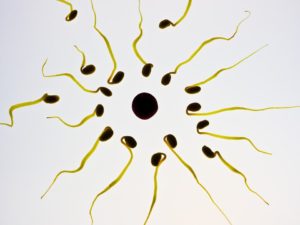Egg freezing once seemed like something far removed from our reality not too long ago, but nowadays, the demand for this procedure has increased significantly. This is no surprise, especially when we consider how recent technological advances have made procedures like this more affordable and, therefore, more accessible to the general population.
Yet despite the growing popularity of egg freezing, many people still have questions about how this procedure works, who it is intended for, whether it is safe, and how much it costs.
Why Freeze Your Eggs?
First of all, it’s important to discuss the reasons why a woman might want to freeze her eggs and, for that, explain the purpose of this procedure. Egg freezing works basically as a method to make it easier for a woman to become pregnant after age 35 or later.
It is estimated that a woman has about 500,000 eggs when her first period occurs, a number that decreases with age. Age 35 is considered the “limit” for a woman to not experience fertility problems.
Moreover, after this age, the risk of having a baby born with diseases such as Down syndrome, for example, increases considerably. It’s important to remember that this risk does not decrease due to egg freezing, since the procedure only guarantees the woman’s ability to conceive.
Many women want to focus their lives on their careers or simply enjoy their youth more, and for this reason, choose to freeze their eggs, as their fertility ends up being preserved. This is an option for women that should be well thought-out, as it involves costs and significant life decisions.
How Does Egg Freezing Work?
After a woman decides to freeze her eggs, there are some steps that must be followed so that the procedure is done correctly. These include:
- Clinical Evaluation of the Woman
- Ovulation Stimulation
- Ovulation Monitoring
- Egg Retrieval and Freezing
Clinical Evaluation of the Woman
During this phase, several tests, such as ultrasound, are performed to assess if the woman is actually able to freeze her eggs. This is one of the simplest phases of the process, but extremely necessary. Tests are also done to check ovarian reserve. This test is done via a blood sample and is very simple.
Ovulation Stimulation
In this phase, hormone injections are administered to stimulate ovulation. This is a somewhat more complicated and lengthy phase, since the injections are given over 8 to 14 days and it is also necessary to take medications to prevent ovulation and, consequently, menstruation.
Ovulation Monitoring
From this phase on, eggs are monitored as they mature. The woman must take medication to stimulate this maturation while the entire process is assessed through tests. After this phase, the doctor will decide if the eggs are ready to be retrieved and frozen.
Egg Retrieval and Freezing
Through the vagina, the doctor retrieves about 10 eggs from the woman (this may vary depending on the case). The procedure is very quick and painless, as the woman will be medicated throughout the process. Immediately after retrieval, the eggs are frozen.
When Is Egg Freezing Recommended?
This type of procedure is indicated for any woman who wishes to be a mother, but not while she is young, and still wants to preserve her fertility. No matter the reason—whether it’s for professional advancement, addressing health issues, or simply enjoying more time without motherhood. If a woman has this wish, she can go to a clinic, consult with a doctor, and complete the entire process to freeze her eggs.
Are There Risks?
The process of freezing eggs itself poses no risk to the woman. However, it is important to know that the older a woman is, the more risks pregnancy brings. It does not matter the age at which the eggs were frozen, since this only impacts fertilization.
Pregnancy will occur at the woman’s current age, so risks such as having a baby with Down syndrome are still a reality for older women.
How Much Does Egg Freezing Cost?
Egg freezing used to be much more expensive and an unfeasible option for most people. Nowadays, with the popularization of the procedure and technological advances, the price has dropped considerably. However, that does not mean it is exactly cheap.
The cost of egg freezing can range between R$6,000 and R$10,000, depending on the clinic and the region of Brazil where you live. That’s why it needs to be carefully considered by a woman and, when it is a joint decision, discussed as a couple. However, it is not necessary for a woman to have a partner to freeze her eggs; she can do it alone, without needing anyone’s consent.
Difference Between Egg Freezing and Embryo Freezing
Many people confuse the two, but egg freezing and embryo freezing are different procedures. While the first involves only female cells that can be fertilized later, embryo freezing involves both male and female cells already fertilized through in vitro fertilization.
We can say that embryo freezing is a process that comes after egg freezing, but they are still different procedures.
Freezing eggs can be a great option for women who intend to become pregnant later in life for various reasons, whether it’s work, study, travel, or other plans. For those wishing to become mothers later, especially after age 40, this is the safest option.
With everything in order, a woman can live her life peacefully, focus on what matters most at that moment, and later get pregnant through in vitro fertilization. These are positive things that modern times offer us and that we should take advantage of.
Important Tip: For those considering pregnancy, Famivita offers various alternatives to help make this moment happen as soon as possible. Learn more about our products for people trying to conceive here.
See Also: Pregnancy After 40 — Risks and Benefits
Photo: TBIT












